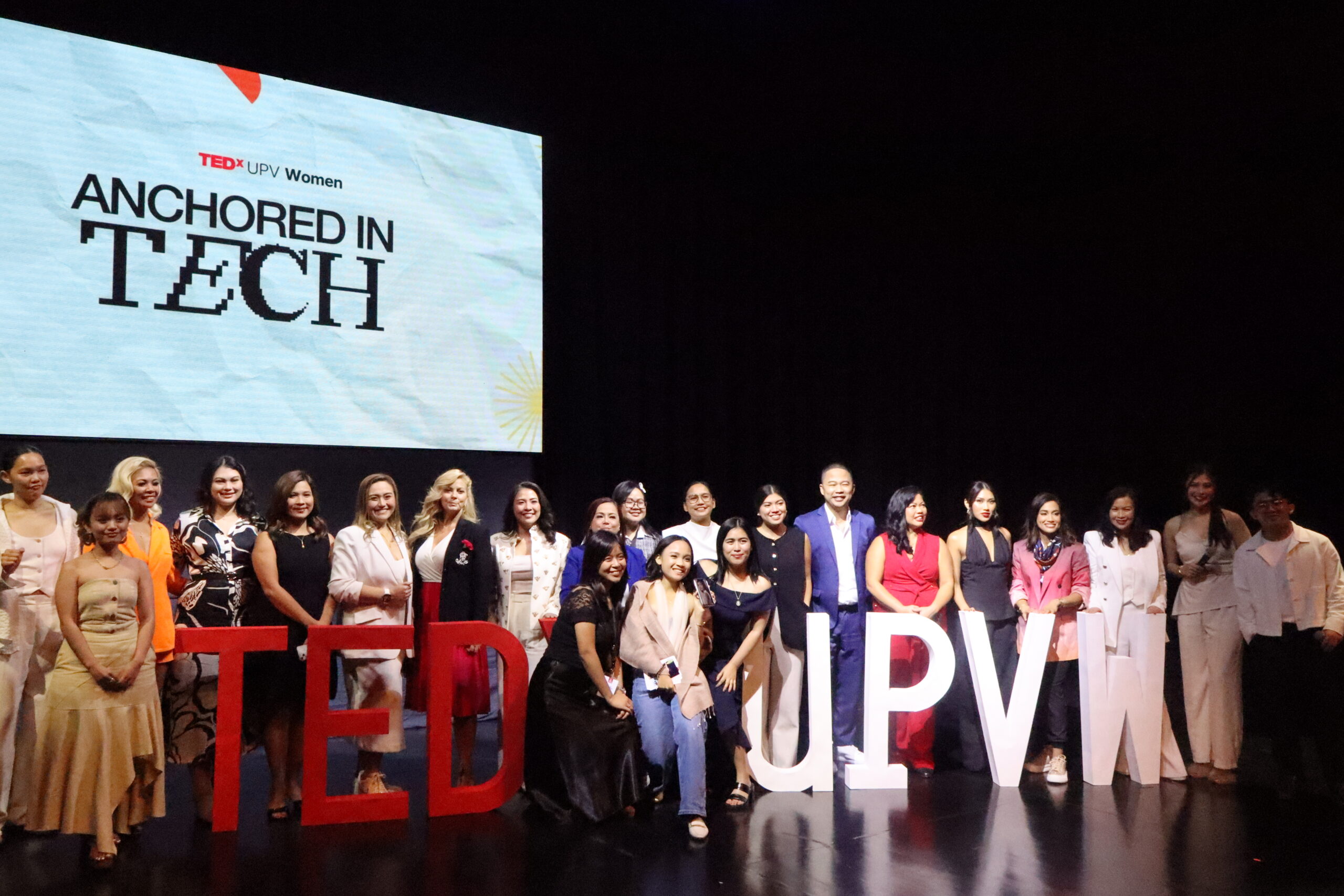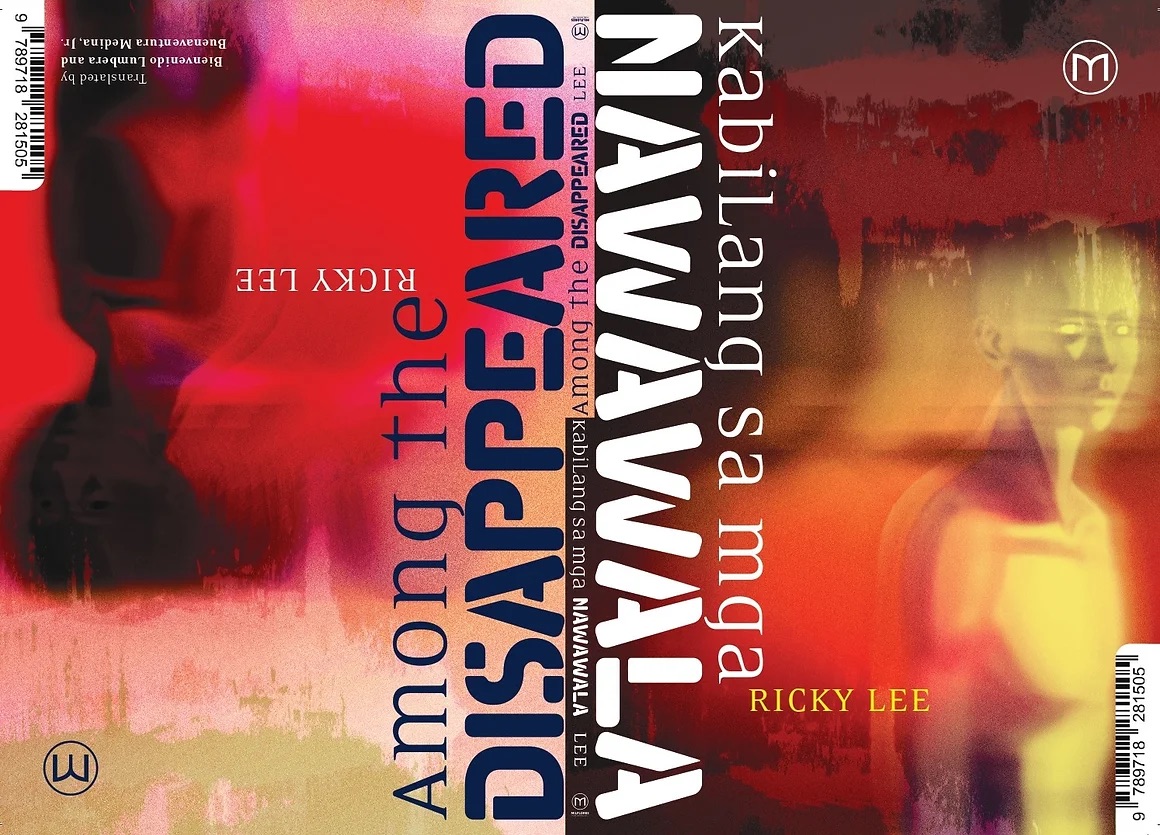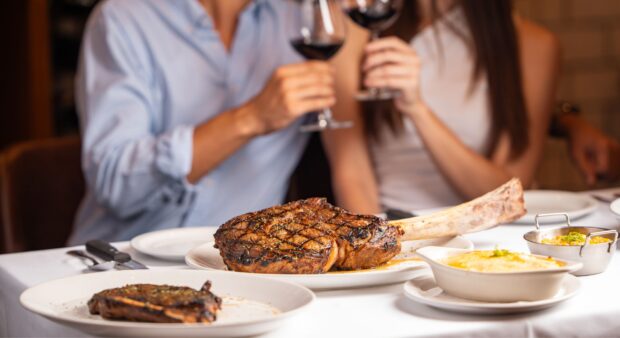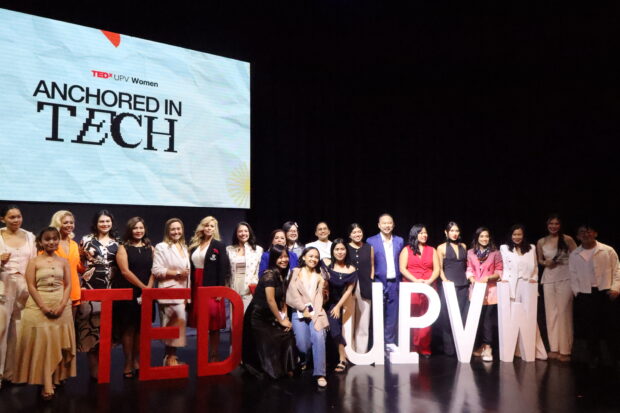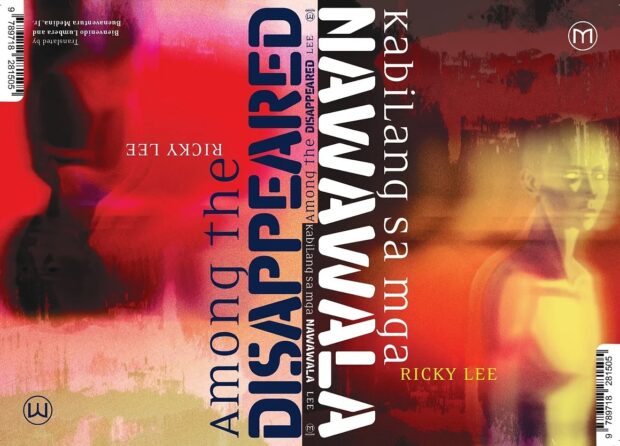.

Tomorrow, Feb. 14, marks the 701st day of the world’s longest community quarantine—as well as the second Valentine’s Day for Filipinos under social distancing. Being an innately romantic people, Filipino couples have been putting up with a lot to stay together even if they are quarantining together or not.
But something unusual is in the air—and while it may be purely anecdotal, the pandemic is most likely to blame. Longtime couples—even married ones—are unexpectedly parting ways. Meanwhile, new couples who have just met are suddenly dating. What in the name of Omicron is going on?
For example, broadcaster and entrepreneur Ces Drilon quietly split from partner Ricky Carandang after a 13-year relationship. Drilon told Lifestyle that their relationship had begun in 2008 shortly after she had been abducted by the Abu Sayyaf. Back then, Carandang was a spokesperson for the late President Benigno Aquino III.
“We never really lived together,” she told Lifestyle. “We each had our own spaces, and would spend weekends at his place.”
Once COVID-19 struck, Drilon was often out distributing personal protective equipment, so she stayed with Carandang for a few months to protect her son who lived with her. She returned to her house in May 2020.
Considering the two weren’t spending every day together, the separation caused by the quarantine did not impact their relationship as drastically as it did others. So why break up after all that time?
“The pandemic uncovered the weaknesses in our relationship,” Drilon said.
A year before the pandemic, Drilon had famously told Entertainment columnist Dolly Anne Carvajal that the secret to her relationship with Carandang was that they were not married, and Drilon said that was true—at the time. “I thought it was working. I wanted us to live together. I guess I was just trying to adjust to the situation.”

Fragile relationships
Joselito C. Pascual, M.D., M.Sc., says, “Weak or fragile relationships, to begin with, no matter how solid they may look on the outside, may further weaken. I think honesty is the key—that, and being in touch with one’s own issues.”
It gets even worse if couples not used to being together 24/7 have to be cooped up together. “That sacred ‘me space’ is shattered when they realize that they have to keep up with each other’s behavior. They eventually realize that personal growth is stunted, and that may take its toll on each other’s mental health, which may manifest as depression, anxiety, aggression, irritability and even resentment.”
Drilon says a lot of things came into focus during that time that may not have otherwise. “I kind of momentarily lost my bearings. I lost my job. I didn’t really have any purpose.” Many of the things that were normal to Drilon had been stripped away—they couldn’t even go out, for example—and all this began building up. “I was just not looking deep into it before,” she says.
“I was actually questioning, before the pandemic, if I was settling. I was convincing myself, ‘No, this is good,’ when there were signs that there were already difficulties in the relationship.”
The breakup was complicated by the fact that they were doing business together with produce from Carandang’s Tanauan, Batangas, farm. They had to ask themselves whether they should continue doing so. “There was an option of ending the relationship but doing business together, and that’s why I took a bit of a while to decide, ‘No, no more.’” The mutual decision to break up came relatively quickly—in just weeks.
Did the possible loss of the relationship’s longevity give her pause? “No, that wasn’t even a factor at all,” she said. “I think they shouldn’t even say that because sometimes you’re thinking, wow, I wasted my youth. But, you know, don’t look at it as wasted years because they shaped you. They formed you. There were good things. Maybe there were bad things too, but it’s really part of life.”

Working through it
The end still came painfully: “You allow yourself to be vulnerable in a relationship. It’s so precious. You’re so open. You’re so easily wounded. Then what happened? Just like the rug was pulled from under your feet.”
But Drilon isn’t dwelling on that. “If I was not exposed to the farm, I would not have rekindled my love for plants,” she says. “And so, it meant I had to do that, too. It’s something I’d thank him for.”
Drilon and Carandang ended the relationship in person on March 10, 2021 and set in place a compromise agreement regarding the farm. Though the farm is Carandang’s, they agreed that Drilon would have access to it until she has her own farm up and running. This is for Drilon’s nascent business Provenciana (provenciana.com), which sells natural remedies such as smudge sticks, insect repellent and artisanal soap whose ingredients mostly come from the farm. Drilon’s already put down a downpayment on a farm and once that is up and running, she will no longer need access to Carandang’s farm.
Drilon has certainly kept busy, even after overcoming her own battle against COVID last month. She has a show on dzXL called “Basta Promdi, Lodi!” She even let her name be licensed by Linya- Linya for a T-shirt that said “Stress Drilon” and she’s now shooting a “BL” or “Boy’s Love” TV series called “Love Team.”
She didn’t just work—she had to work through it. “I had to see a therapist because, in the beginning, I thought, I’m a strong woman and can really just easily get over it. I wanted to be busy, busy. I was saying, this is easy. I was desperate, too, to get over it. I was desperate to be okay. I was in denial. And so, I had to acknowledge that I was hurt.”
Dr. Pascual says couples who are suffering in pandemic bubbles should “reduce expectations and think that everyone is stressed and worried especially during these times. They could seek therapy or counseling, including teletherapy.”
Challenging
Drilon and Carandang are not the only ones who broke up during the pandemic.
Camille Arcilla is a 30-year-old senior project manager for media relations and business development in a public relations and marketing agency in Alabang. She met her now ex-boyfriend Jeffrey (not his real name) when they both worked at another company in 2012.
Eventually, they both left that company and got different jobs. Jeffrey also began studying for the bar exams, which made things hard enough, as this ate into their time together. The fact that Arcilla lived in Alabang and Jeffrey in Valenzuela—opposite ends of the metro—did not help.
“It was really challenging for us to work on the relationship even before the pandemic,” Arcilla says. “There were more reasons for us to try our best to work on the relationship when the pandemic happened, but other problems transpired after that.” Arcilla was hurt, for example, that Jeffrey made the effort to visit her in person during the quarantine only twice—and the second time was only because it was her birthday.
“The last row actually was when he said that he was trying his best to go because I wanted him to be there. I knew that we were in the middle of a pandemic, pero I don’t think it was right for him to say that that was the reason he came, not because he wanted to go on his own.”
Arcilla emphasized that their love languages—something personally important to her—were way off “so it showed some incompatibilities.” This became most obvious with one topic: “The idea of getting married.”
All the other girls in Arcilla’s barkada had gotten married before or during pandemic, leaving her the only single girl standing. “Every time I tried to bring it up to him, he always brought up his bar exam. I was actually willing to wait after the bar. But the thing is, he wasn’t even open to talking about it.” She felt neglected and taken for granted.
The seven years they shared was a factor that made her think twice about breaking up. “That was sad. That’s seven years and it’s ⅓ of my life.”
The two had even already bought a preselling condo in Mandaluyong City in their names that needs to be paid for until 2025. It took a while before Jeffrey agreed to pay Arcilla for her share of the condo.
‘Cooling off’
Arcilla and Jeffrey decided on what is popularly called a “cooling-off” period. After a month, Arcilla decided enough was enough. In November 2020, she sent him a text message ending it. “I texted him a very lengthy message with all the reasons I was breaking up with him, what could have been better, what he could have done and what he could have fixed.”
Jeffrey messaged saying he was going to try harder—and then proceeded to do “nothing to redeem himself,” Arcilla said. She secretly gave him a little more time, hoping he would do something, anything to prove himself.
In the meantime, Arcilla had to do something she never imagined she’d have to do: date.
“I asked my friends about Tinder and Bumble and I tried it out myself.”
But there are times when the past would get in the way. “Sometimes, I still think I won’t be able to meet somebody who would accept me for who I am because I’d think na parang it’s just him.”
Wasn’t there a serious risk of rebounding? “I was looking for someone because I already knew that it was over for us. And I don’t want to wallow in sadness. I don’t want to stick around because I think that he’s not doing anything anymore.”
All this technology that allowed people to stay somehow connected has also led to the rise of virtual relationships—romance exclusively through screens, long-distance relationships without the “long” part—that some even call “quaranflings.” Dr. Pascual cautions that “oftentimes, virtual identity is different from real identity. It’s like having an inauthentic relationship, one that is not secure and has no sense of reassurance.”
Very hopeful
Ironically, Arcilla didn’t meet anyone through the dating apps. In fact, she wasn’t even looking at all in June 2021, when she was bored and just reading through the Reddit community PHR4R.
“I saw his post, and we started messaging each other through Telegram.” He was Jace Siddayao, 29, who provides customer support for a luxury furniture brand based in the US. They agreed they would not exchange photos until they felt comfortable enough to do it, and so they did. They then decided to meet up that weekend.
“I was supposed to do my groceries and he accompanied me,” Arcilla said. “Iba ’yung compatibility even when we were communicating without knowing what the other looked like. And it was cute because I just asked him to come with me to the grocery—first date namin ’yun—and may pa-flowers na siya kaagad.” Arcilla loves flowers and had kept dropping hints to her ex but this was dismissed as being “impractical.”
The flower telepathy was a sign, apparently—as was the fact Arcilla says their love languages were almost identical, and three months later they were officially an item, aided by Telegram and video calls through Discord. Yes, theirs is a very modern romance.
Yet, Arcilla remains sanguine, admitting that had the pandemic not happened, she would probably still be with Jeffrey.
Arcilla and Siddayao have been living together since December in a rented Alabang condo, spending a lot of time playing “Stardew Valley” (it’s her favorite game and requires two players) on Arcilla’s Twitch channel (it was a hobby she picked up while recovering from the breakup). “Crazy, right?”
How many Valentine’s Days under quarantine does the Philippines have to go through before social distancing—so counterintuitive to us—is a thing of the past? How many couples will come apart and together?
Unlike her earlier relationship, Arcilla’s not making plans but is very hopeful. “We’re very early in the relationship but I haven’t given up on marriage someday.”
Like her, Drilon gets to make her own choices. Does she still believe in relationships? “I don’t know,” she answered. “I mean, there are many that work.”
But does she believe there is one out there for her? “I’m not looking, but what the universe will give me, I’m open to.”


